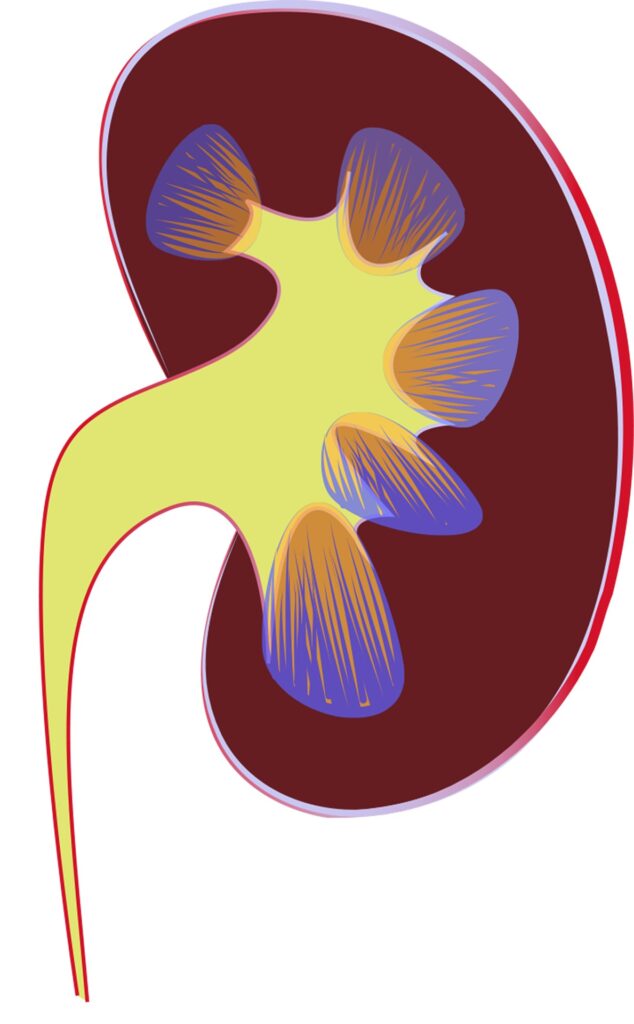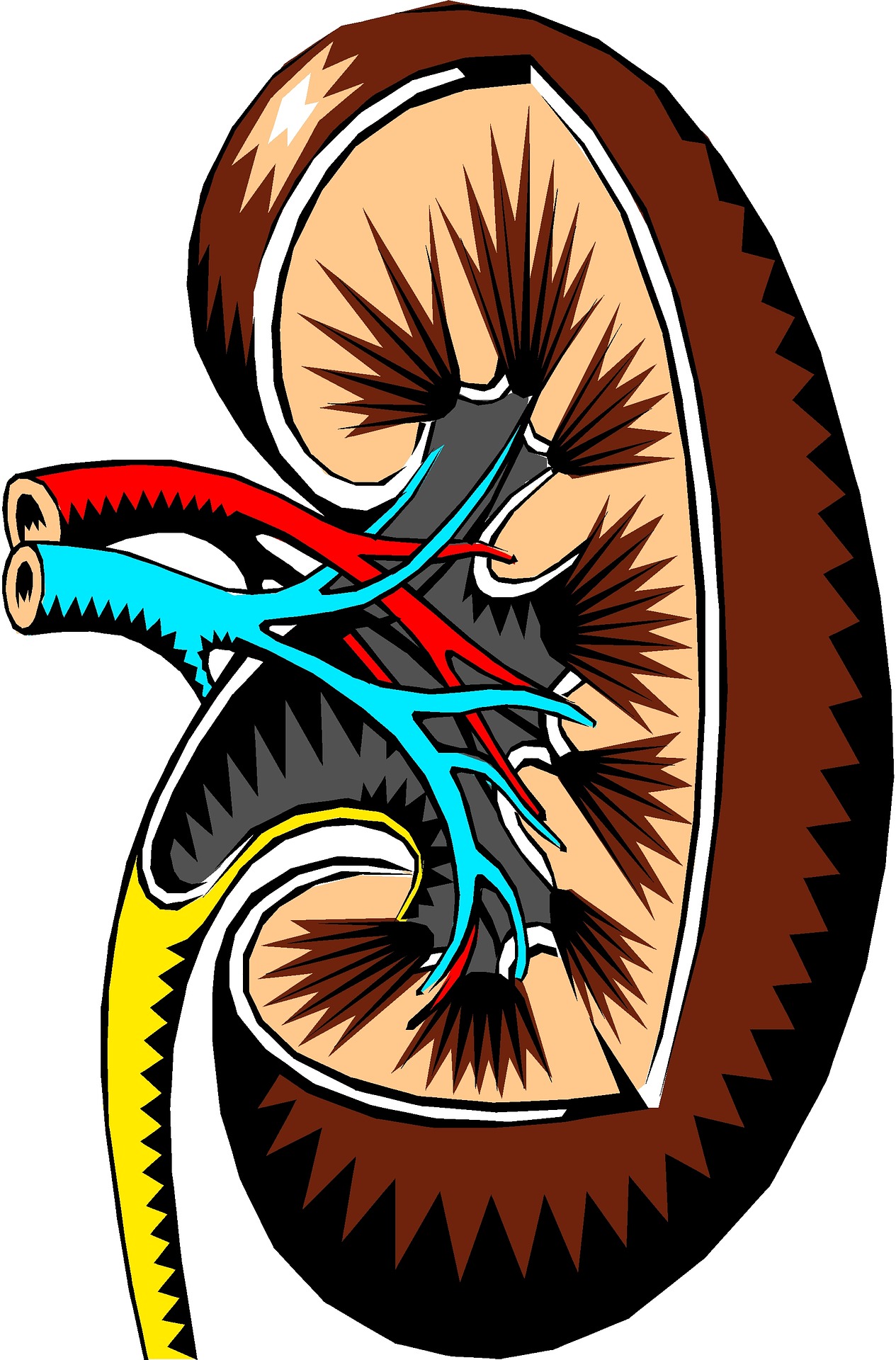kidney stones

Today we are going to talk about kidney stone. Kidney stones have become a common problem these days, and many people suffer from this discomfort. So let’s know what this disease is, why it happens, what are its symptoms and how to prevent it.
What are kidney stones?
Our kidney are responsible for cleaning the blood in the body and removing waste products through urine . Sometimes, when certain minerals and salts dissolve in excess in the urine, they combine to form hard particles. These hard particles are called kidney stones. These stones can be as small as grains of sand to as large as grains of pea.
Why do kidney stone occur?
There are many reasons why kidney stone can occur, some of the main ones being:
- Drinking less water : When we drink less water, urine becomes concentrated. This makes it difficult for minerals and salts to dissolve and they start to form stones.
- Diet : Excessive intake of certain items in our diet also increases the risk of stone formation. These include more salt, more protein (meat, fish, eggs), spinach, tomatoes, chocolate, and certain types of fruit.
- History in the family: If anyone in your family has had kidney stones before, you are at a higher risk of having them too.
- Certain diseases : Certain diseases such as hyperparathyroidism (cystic fibrosis), and renal tubular acidosis also contribute to the formation of stones.
- Obese: People who are overweight also have a higher risk of developing kidney stones.
- Certain medications : Certain medications can also cause kidney stones.
Kidney Stone Symptoms
Kidney stone often have no symptoms as long as they remain in the kidney. But when the stone gets into the ureter, which carries urine from the kidneys to the bladder, it causes sharp pain. Here are some of its main symptoms:
- Sharp pain : This pain starts in the lower back and can radiate to the lower abdomen and thighs. This pain comes in waves and can be very sharp.
- Blood in the urine : Sometimes there may be blood in the urine, which may be pink, red or brown.
- Frequent urination : You may have the urge to urinate frequently.
- Burning while urinating : Pain or burning may be felt while urinating.
- Vomiting or nausea: Sharp pain may also cause vomiting or nausea.
- Fever and chills : If the stones cause infection, fever and chills may also develop.
- Small urination : Sometimes the urine comes in small amounts.
Diagnosis of kidney stones
If you experience any of the above symptoms, you should consult a doctor immediately. The doctor can examine you to determine if you have kidney stone. Here are some methods for diagnosis:
- Physical Examination : The doctor will perform a physical examination and ask about your symptoms.
- Urine test : Blood, crystals and infections can be detected by testing the urine.
- Blood tests : Blood tests can check whether the kidneys are functioning properly.
- X-ray: Some types of stones are visible in X-rays.
- Ultrasound : Ultrasound can be used to detect stones in the kidneys and urinary tract.
- CT Scan : A CT scan can show stones in more detail and is the best way to detect them.
Treatment of kidney stone
Treatment for kidney stones depends on the size and location of the stone. Some small stones pass through the urine on their own, but larger stones may require treatment. Here are some treatment options:
- Drink plenty of water : Doctors will advise you to drink plenty of water throughout the day to increase urine production and pass stones easily.
- Painkillers : The doctor may prescribe painkillers to reduce pain.
- Alpha-blockers : These drugs relax the muscles of the ureter, allowing stones to pass more easily.
- Medical procedure
- Extracorporeal Shock Wave Lithotripsy (ESWL): In this procedure, shock waves (sound waves) are sent from outside the body, which break the stone into small pieces. These fragments are then easily excreted through the urine.
- Ureteroscopy : In this procedure, a thin tube (ureteroscope) is inserted into the urethra through the urethra (urethra) and bladder. If stones are visible, they are removed or broken up with a laser.
- Percutaneous Nephrolithotomy (Percutaneous Nephrolithotomy – PCNL): This is a small operation done to remove large stones. A tube is inserted through a small cut in the groin to the kidney and the stone is removed or broken up.
- Open Surgery : Open surgery is rarely performed these days, but may be required for very large or complex stones.
Kidney Stone Prevention
Prevention of kidney stones is always better than treatment. A few easy ways we can avoid this problem:
- Drink plenty of water: Be sure to drink at least 8-10 glasses of water throughout the day. The urine should be clear and pale yellow.
- Take a balanced diet : Pay attention to your diet. Eat less foods high in salt, high protein, and oxalate.
- Follow the doctor’s advice – If you have had stones before, be sure to follow the doctor’s advice and follow whatever diet they prescribe.
- Avoid certain foods : If you have calcium oxalate (calcium oxalate) stones, eat less spinach, tomatoes, chocolate, and fruits. If you have uric acid stones, eat less red meat and seafood.
- Drink lemon water : Lemon contains citrate which can prevent the formation of stones. So drinking lemon water can be beneficial.
- Exercise regularly : Regular exercise keeps the body healthy and can reduce the risk of stones.
- Keep weight under control : Overweight people are at higher risk of stones, so keep your weight under control.
Conclusion :
Kidney stones can be a painful problem, but they can be prevented with the right information and precautions. If you experience any of its symptoms, consult a doctor immediately and get proper treatment. By improving our eating and drinking habits, we can significantly reduce the risk of kidney stones.
Frequently Asked Questions
Question 1: What causes kidney stones?
Answer: Kidney stones are hard particles that form in the kidneys when excessive amounts of certain minerals and salts dissolve in the urine. These particles can be as small as a grain of sand or as large as a pea.
Question 2: Why do kidney stones occur?
Answer: There are many reasons why kidney stones can occur, such as drinking too little water, poor diet, family history of stones, certain diseases and medications, and obesity.
Question 3: What are the main symptoms of kidney stones?
Answer: The main symptoms of kidney stones are sharp pain in the lower back that may radiate to the lower abdomen and thighs, blood in the urine, frequent urination, burning when urinating, nausea or vomiting, fever and chills (if infected), and occasional urination.
Question 4: How are kidney stones detected?
Answer: Kidney stones are detected by physical examination, urine and blood tests, imaging tests such as x-rays, ultrasounds, and CT scans.
Question 5: How are kidney stones treated?
Answer: Treatment for kidney stones depends on the size and location of the stone. Small stones tend to pass on their own with more water and painkillers. Medical procedures such as ESWL, ureteroscopy, PCNL or open surgery may be required for large stones.
Question 6: How to prevent kidney stones?
Answer: To prevent kidney stones, drink plenty of water, eat a balanced diet, follow the doctor’s advice, avoid certain foods (if prescribed), drink lemon water, exercise regularly, and keep your weight under control.
Question 7: What should you do if you think you have kidney stones?
Answer: If you experience any of the symptoms of kidney stones, you should consult a doctor immediately. Do not self-administer any treatment.
Question 8: Can kidney stones be recurrent?
Answer: Yes, people who have had kidney stones once are at risk of recurrence. So it is important to pay attention to prevention methods.
Question 9: What can we do to ease the pain of kidney stones?
Answer: Doctors may prescribe painkillers to ease the pain of kidney stones. Hot sikai can also be relaxing. Drinking plenty of water is also important.
Question 10: Does diet affect kidney stones?
Answer: Yes, diet affects kidney stones. Eating too much salt, too much protein, and too much food with oxalate can increase the risk of stone formation. The doctor may prescribe avoidance according to your stone type.
Question 11: How long does it take for kidney stones to pass?
Answer: The time it takes for a kidney stone to pass depends on the size and location of the stone. Smaller stones may pass in a few days or weeks, but larger stones may take longer or require treatment.
Question 12: Does exercise help kidney stones?
Answer: Light exercise and walking may help the stone pass somewhat, as it agitates the ureter. But it is better to rest in case of sharp pain.
Question 13: How is lemon water beneficial for the prevention of kidney stones?
Answer: Lemons contain citrate, which binds to calcium in the urine and prevents stone formation. So drinking lemon water regularly can be beneficial.
Question 14: What can happen if kidney stones are not treated?
Answer: If left untreated, kidney stones can cause sharp pain, urinary retention, kidney infections, and even long-term kidney damage.
Question 15: What are the home remedies for kidney stones?
Answer: There is no straightforward home remedy for kidney stones. The most important thing is to drink plenty of water and follow your doctor’s advice. Some home remedies can provide some relief from the pain, but it is important to consult a doctor for treatment.
